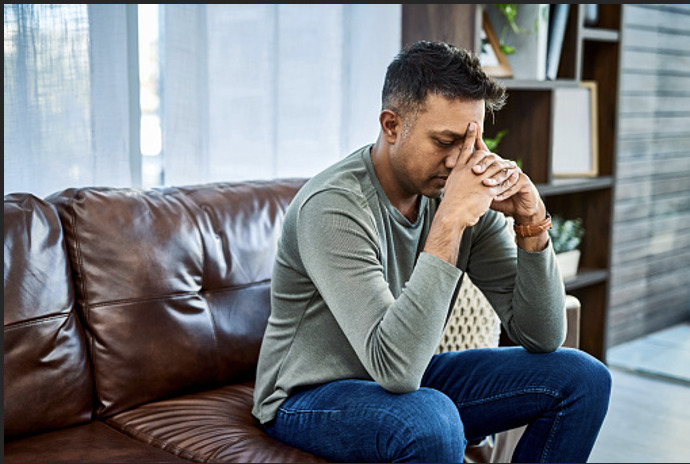
Introduction
I’ll explain how sleep impacts the mental state, but how do I explain in a few sentences what it is? Sleep is a vital process that allows our bodies as well as brains to relax and regenerate. Just like if your car broke down, your brain breaks down too. People who aren’t getting enough sleep can be susceptible to experiencing mood shifts and negative thinking. They also have impaired decision-making abilities and anxiety. On the other hand, people who get enough sleep (at least seven hour of sleep) tend to be less likely to suffer from anxiety or depression.
The Relationship Between Sleep and Mental Health
It’s not a secret that sleep plays a crucial role in maintaining good physical and mental well-being. Insufficient sleep may cause you to feel irritable and tired in the short term but it could be a serious risk to your health over the long term also. Sleep deprivation is linked to a variety of negative health effects, such as heart disease and type 2 diabetes, and depression.
Certain mental illnesses can cause insomnia and sleep disorders can also intensify the symptoms of various mental disorders, including anxiety, depression as well as bipolar disorder.
The research suggests that the connection of sleep with mental wellbeing can be complex. Although sleep has been recognized as the result of many mental health illnesses, newer research suggests that sleep could be a factor in the development and maintenance of various mental health issues.
In the same way, problems with sleep can cause shifts in your mental wellbeing, however mental health issues can make sleep issues worse. Insufficient sleep can lead to the development of some mental illnesses, but scientists aren’t entirely certain of the root causes behind this. Due to this cyclical relationship between your sleeping patterns and your mental health, it is crucial to speak to your physician if you have trouble falling asleep or sleeping or staying asleep. Always look for a space-efficient bed before buying one.
Depression
Too little sleep can result in an overly active sympathetic nervous system, which in turn may trigger symptoms of depression. Researchers at the University found evidence that suggests insomnia is often a symptom of this type of depression (the kind where your body seems to be stuck in ‘sympathetic overdrive’). It’s not surprising, but there’s evidence to suggest that people suffering from severe depression are more likely to not get adequate sleep. In any case, treatment for both depression and insomnia typically involve prescription drugs.
Stress
The National Sleep Foundation reports that people who get less sleep are more likely to be stressed. This is because stress causes the body to produce adrenaline and cortisol, which in turn awaken the body from sleep. Many people with insomnia know this very well, as they find it hard to fall asleep after a stressful day at work or school. On nights when a person has enough sleep, their body can use tryptophan to balance out the effects of adrenaline and cortisol.
Anxiety
Studies have also shown that having too little sleep creates an imbalance in the brain’s neurotransmitters. Research indicates this happens because the stress hormone cortisol interferes with the production of melatonin, a sleep-inducing hormone that is also created in response to stress. In turn, not getting enough sleep can cause an imbalance of these neurotransmitters, leading to an increase in anxiety.
Besides supplementing these three essentials (food, water and sleep) in our diets and lifestyles, it’s important to also remember that sleep is vital for our mental health. On any given night, we need at least 7 hours of restful slumber to get enough deep sleep each night (this does not mean sleeping for 8 hours straight).
How To Cope With It?
The guidelines for treating poor sleep or sleep disorders are the same regardless of whether or not you suffer from any psychiatric disorder. The initial approaches typically concentrate on changes to your lifestyle that you can implement to assist you in getting more restful sleep. Staying clear of sleep-inducers (such as nicotine, caffeine alcohol, and caffeine) and following healthy sleeping habits are a few of the kinds of lifestyle changes you can implement to assist.
Alongside seeking advice from medical experts, there are actions you can take yourself to improve your sleep quality and overall health. Good sleep hygiene or practices which promote sleep is essential to stay rested and avoid sleepiness during the day.
Stop the amount of time you nap.
Too much sleep throughout the day could affect your ability to fall asleep or remain asleep at night. The 20 to 30 minutes per day can make you feel more awake and refreshed without disrupting your sleep.
Create a daily routine.
Stick to a routine that will prepare you for a restful evening. Relax in a tub or read a good book or do a couple of minutes of meditation to relax your mind and body. Repetition these practices every evening to create the right mood for a restful night’s sleep.
Avoid stimulants or caffeine before bed.
Consuming coffee, soda, or any other caffeinated drinks in the later afternoon, or in the evening may make it difficult to sleep. And if you sleep less, then the melatonin production slows down.
Turn off your devices.
TV or using your phone in the evening makes it difficult to relax and fall asleep at night. You can set limits for when you can stop using your device before you go to bed.
Consult an expert in mental health when you think your sleep problems could be due towards a mental health issue. Depression, anxiety as well as other mental health problems could interfere with sleep. However, the treatment of your sleep issues may also have an impact on the psychological symptoms you experience.
Conclusion
Health and mental wellbeing is an essential aspect of overall wellbeing. Getting enough quality sleep is one way to help maintain good mental health. If you’re struggling with insomnia or other sleep issues, talk to your doctor about ways to improve your sleep hygiene and get the best night’s rest possible.




